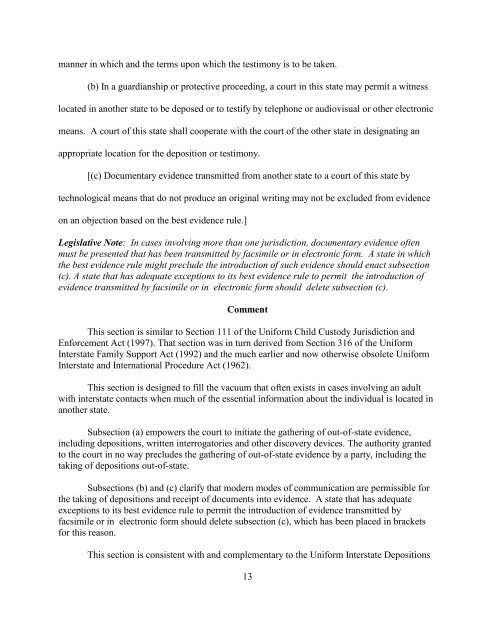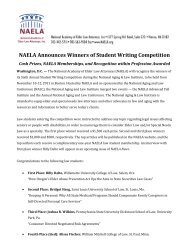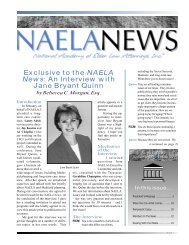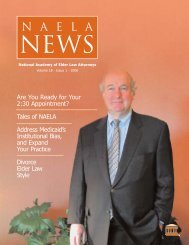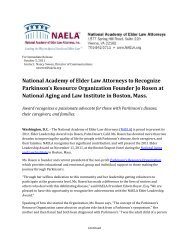uniform adult guardianship and protective proceedings jurisdiction act
uniform adult guardianship and protective proceedings jurisdiction act
uniform adult guardianship and protective proceedings jurisdiction act
Create successful ePaper yourself
Turn your PDF publications into a flip-book with our unique Google optimized e-Paper software.
manner in which <strong>and</strong> the terms upon which the testimony is to be taken.(b) In a <strong>guardianship</strong> or <strong>protective</strong> proceeding, a court in this state may permit a witnesslocated in another state to be deposed or to testify by telephone or audiovisual or other electronicmeans. A court of this state shall cooperate with the court of the other state in designating anappropriate location for the deposition or testimony.[(c) Documentary evidence transmitted from another state to a court of this state bytechnological means that do not produce an original writing may not be excluded from evidenceon an objection based on the best evidence rule.]Legislative Note: In cases involving more than one <strong>jurisdiction</strong>, documentary evidence oftenmust be presented that has been transmitted by facsimile or in electronic form. A state in whichthe best evidence rule might preclude the introduction of such evidence should en<strong>act</strong> subsection(c). A state that has adequate exceptions to its best evidence rule to permit the introduction ofevidence transmitted by facsimile or in electronic form should delete subsection (c).CommentThis section is similar to Section 111 of the Uniform Child Custody Jurisdiction <strong>and</strong>Enforcement Act (1997). That section was in turn derived from Section 316 of the UniformInterstate Family Support Act (1992) <strong>and</strong> the much earlier <strong>and</strong> now otherwise obsolete UniformInterstate <strong>and</strong> International Procedure Act (1962).This section is designed to fill the vacuum that often exists in cases involving an <strong>adult</strong>with interstate cont<strong>act</strong>s when much of the essential information about the individual is located inanother state.Subsection (a) empowers the court to initiate the gathering of out-of-state evidence,including depositions, written interrogatories <strong>and</strong> other discovery devices. The authority grantedto the court in no way precludes the gathering of out-of-state evidence by a party, including thetaking of depositions out-of-state.Subsections (b) <strong>and</strong> (c) clarify that modern modes of communication are permissible forthe taking of depositions <strong>and</strong> receipt of documents into evidence. A state that has adequateexceptions to its best evidence rule to permit the introduction of evidence transmitted byfacsimile or in electronic form should delete subsection (c), which has been placed in bracketsfor this reason.This section is consistent with <strong>and</strong> complementary to the Uniform Interstate Depositions13


